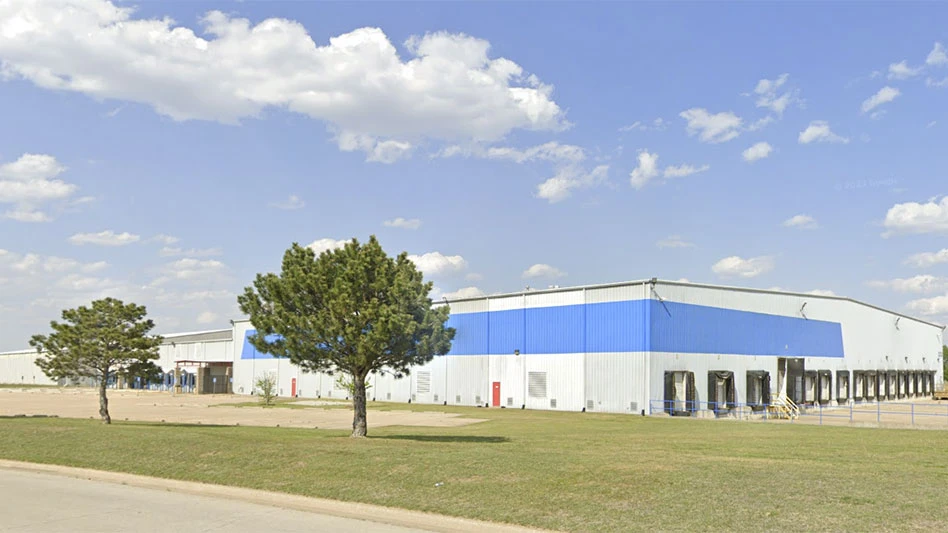
Photo courtesy of Blue Whale Materials/Brunswick Group
Lithium-ion battery recycler Blue Whale Materials (BWM), headquartered in Washington, has received a contracted grant award of more than $55 million from the U.S. Department of Energy’s (DOE) Office of Manufacturing and Energy Supply Chains (MESC) under the Bipartisan Infrastructure Law Battery Materials Processing and Battery Manufacturing Program that it will use to expand its Bartlesville, Oklahoma, facility.
The expansion of the Blue Whale Bartlesville Blacksand facility is expected to create 150 permanent jobs and 180 construction jobs, with approximately $3 million of the grant going toward workforce development and community outreach through expanded partnership programs with The Delaware Tribe of Indians, Blue Star Recyclers, Tri County Tech and James Emmett and Co., BWM says in a news release about the expansion.
The selection is part of BWM’s larger $110 million expansion initiative, which will enable the Bartlesville facility to process up to 50,000 tons of battery feedstock annually and produce enough valuable critical minerals to power more than 100,000 electric vehicles annually, according to the company, which is a portfolio company of Ara Partners, a global private equity firm with locations in Houston, Washington, Boston and Dublin.
With the expansion, BWM will be able to convert 3.5 times more end-of-life batteries and production scrap into Blacksand, which it describes as “a high-purity, dry, mixed-metal precursor that stands apart from conventional black mass.” The company says its process recovers up to 98 percent of the cobalt and nickel in lithium-ion batteries and production scrap, significantly reducing contaminants such as aluminum, copper and fluorine and creating an optimized input for downstream metal refiners and battery material manufacturers.
Blacksand production differs from traditional wet processes for recovering black mass because batteries are not shredded in water or soaked for a long time to discharge, BWM says, reducing the wastewater and treatment costs associated with wet processing and resulting in a dry product that is lighter to ship and easier to process.
The facility, which opened in 2024, is situated on a 35-acre campus that includes 150,000 square feet of warehouse space at the Bartlesville Industrial Park. The site encompasses multiple lots designed to facilitate comprehensive battery processing, testing, dismantling and storage.
“We’re thrilled to have the U.S. DOE’s support, and this contracted award is further validation of BWM’s pioneering battery recycling process,” CEO Robert Kang says. “This award directly supports Blue Whale’s mission of building a sustainable and resilient domestic supply chain of critical minerals. Blue Whale’s expansion in Bartlesville enables an increased high-grade black mass production capability, fueling economic growth, quality jobs, and investment in a historic energy community.”
“As the need for critical minerals grows, it is clear that we need to secure this supply chain,” says Oklahoma Gov. Kevin Stitt, who recently hosted BWM on a trade mission to Japan and South Korea. “I’m proud Blue Whale calls Oklahoma home. Their growth in our state aligns with our focus on self-sufficiency in critical materials production and will bring quality jobs and investment to Oklahoma."
Latest from Recycling Today
- BMW Group, Encory launch 'direct recycling’ of batteries
- Loom Carbon, RTI International partner to scale textile recycling technology
- Goodwill Industries of West Michigan, American Glass Mosaics partner to divert glass from landfill
- CARI forms federal advocacy partnership
- Monthly packaging papers shipments down in November
- STEEL Act aims to enhance trade enforcement to prevent dumping of steel in the US
- San Francisco schools introduce compostable lunch trays
- Aduro graduates from Shell GameChanger program





